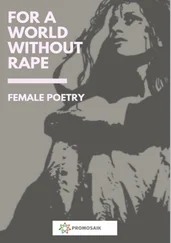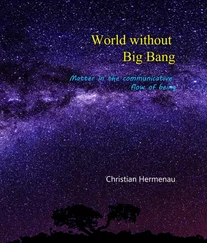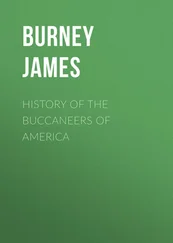Arturo Serrano - To Climates Unknown - An Alternate History of a World Without America
Здесь есть возможность читать онлайн «Arturo Serrano - To Climates Unknown - An Alternate History of a World Without America» весь текст электронной книги совершенно бесплатно (целиком полную версию без сокращений). В некоторых случаях можно слушать аудио, скачать через торрент в формате fb2 и присутствует краткое содержание. Город: Bogot,a, Год выпуска: 2021, ISBN: 2021, Издательство: Amazon, Жанр: Альтернативная история, на английском языке. Описание произведения, (предисловие) а так же отзывы посетителей доступны на портале библиотеки ЛибКат.
- Название:To Climates Unknown: An Alternate History of a World Without America
- Автор:
- Издательство:Amazon
- Жанр:
- Год:2021
- Город:Bogot,a
- ISBN:979-8-75808-648-3
- Рейтинг книги:3 / 5. Голосов: 1
-
Избранное:Добавить в избранное
- Отзывы:
-
Ваша оценка:
- 60
- 1
- 2
- 3
- 4
- 5
To Climates Unknown: An Alternate History of a World Without America: краткое содержание, описание и аннотация
Предлагаем к чтению аннотацию, описание, краткое содержание или предисловие (зависит от того, что написал сам автор книги «To Climates Unknown: An Alternate History of a World Without America»). Если вы не нашли необходимую информацию о книге — напишите в комментариях, мы постараемся отыскать её.
To Climates Unknown: An Alternate History of a World Without America — читать онлайн бесплатно полную книгу (весь текст) целиком
Ниже представлен текст книги, разбитый по страницам. Система сохранения места последней прочитанной страницы, позволяет с удобством читать онлайн бесплатно книгу «To Climates Unknown: An Alternate History of a World Without America», без необходимости каждый раз заново искать на чём Вы остановились. Поставьте закладку, и сможете в любой момент перейти на страницу, на которой закончили чтение.
Интервал:
Закладка:
“The harmony of the empire was broken in the past by the unjust expulsion of the preachers of the Heavenly Lord, who with infinite mercy continues to watch over our Emperor. A first step toward restoration of that harmony was taken with the return of the preachers to the capital city, where they will be permitted to practice and teach their religion with no further restrictions.” Xiaobo heard murmurs of disapproval, but nothing too overt; they stood in the presence of the Emperor. People knew when to appear deferential. “However,” continued the minister, and she knew the hard part had to be next, “not enough reparation has been made to the Heavenly Lord, who wishes that every human being be subjected to the adoration of his only Son.”
This is it, she thought. The empire will turn Christian. This is not at all what I wanted. What did I do wrong?
The Emperor stepped forward and the Minister of Rites, evidently disgusted with what he was being made to do, said in an even louder voice, “All praise the Son of the Heavenly Lord,” while Xiaobo strained to hear both the speech and the complaints in the crowd, “Holy Emperor Taichang!”
A wave of gasps swept over the square. What did he say? Did he just declare himself the Son of God? But that thought was replaced by another, more urgent: Tsunenaga. I must talk to him. She thought he’d lost sight of him, but after dodging the movements of the crowd she found him again, and started to walk in his direction through the hundreds of people who were still trying to comprehend what was being demanded of them. As she got closer, she made the effort to keep the stage within her visual field at all times, to not lose track of what was happening, and saw that Taichang was being invested with a luxurious robe of a style she’d never seen. This can’t be good, she told herself, but I can’t yet think of a way to turn it back. When a crown with complicated moving parts was placed on the Emperor’s head, she finally understood. Its design was crafted to resemble thorns on the outside. Tsunenaga, you fool. You taught him the part about Jesus being lord and king, and of course he thought it had to mean him. At a signal from the minister, the crowd emitted reluctant cheers, and the noise so overwhelmed Xiaobo that she almost didn’t hear the tortured cry in the middle of it.
She looked around, trying to pick the single cry apart from the unanimous roar, and a commotion at the edge of the multitude drew her attention. At first she thought nothing of it; someone must be very displeased with Taichang’s hubris. Then she saw a robed figure and a metallic sparkle, and her heart sank.
“Tsunenaga! Wait!” She tried to reach him before he left the square, but the collective mood was intensifying and it was getting increasingly harder to move. She continued looking ahead, trying to not lose his track, but she was so fed up with trying to walk that she shifted into her fighting stance and resorted to using the gaps between people to move faster. “Tsunenaga! Where are you going?”
After endless effort, she exited the crowd, but he was gone. She tried to think. He doesn’t know the city. Where could he have— Then she ran toward an alley, headed for his house. She had to stop almost immediately, cursing the pain in her feet. They weren’t made for running. “Tsunenaga! What are you doing?” she cried out to no one. Holding back tears, she walked as fast as her broken and rebroken feet allowed, fearing the worst, knowing that every clumsy step put her farther from getting help. She didn’t even know whom she wanted to help anymore; she knew Tsunenaga must be shaken at his failure, but she had also lost much. When she finally arrived at his address, after what seemed like a full hour, she barely had any strength left to open the door and call out his name.
She was late.
In his private chambers lay Hasekura Tsunenaga, dressed in his ceremonial robes, the lower half of his body folded in the traditional sitting position, the upper half bent over with no life. He still held his sword in his hand, and from the middle of his body a torrent of blood was filling the room.
That night, the Eastern Bureau received the news that the king of the Ryūkyūs had died of old age.
Noon, January 27 (Gregorian), 1673
Jiayu Pass
It was a cosmic understatement to say that the Church had entered a state of panic over China. Because the Emperor had never been baptized, it wasn’t exactly a schism, but it was being handled with the seriousness of one. Scholars in Europe had started to lament that it was a new era of pharaohs, of presumptuous tyrants who fancied themselves living gods. A horde of missionaries descended upon the empire following Taichang’s proclamation, and whole monasteries of preachers would have been transplanted there if by the middle of the century the Canutic Empire hadn’t begun to make sea travel mortally dangerous for Catholic ships.
Taichang died in 1647, having consolidated China’s transition toward full theocracy, and was succeeded by his eldest surviving son Youjian, who on the day of his accession to the title of Son of the Heavenly Lord adopted the regnal name Zhenzui, which was an immediate headache for the Jesuits. A regnal name served to define the entire period during which an emperor ruled, and was selected as a harbinger of the ideal of government that he aspired to provide. Zhenzui could be translated as “veritably excellent,” a grandiose exaggeration that, as regnal names went, sounded perfectly normal. However, plaques and signboards in Chinese were written from right to left; to Western eyes, accustomed to reading from left to right, the name could be taken to mean “ultimate truth,” which made it a blasphemous name, an overt defiance to the Pope’s authority to declare what was the correct doctrine. It didn’t escape Xiaobo that under that reading it was blasphemous to two religions, because “the Truest” was one of the holy names of Allah.
Her own name was still, as far as everyone knew, Ma Liang, and under that name she ascended several ranks in the Eastern Bureau, propelled by her own hard work and by Taichang’s grateful remembrance of her service during his time of illness. By the time Emperor Zhenzui was crowned, she had become Chief Eunuch of the Great Ming, and all her efforts were now devoted to tempering her ruler’s claims of divinity. She was on a self-assigned mission to one day restore the primacy of the one true god, although she had come to terms with the unpleasant fact that it would probably take several generations of emperors and as many generations of faithful Muslims in the bureaucracy to steer matters back to normalcy. For the time being, she carefully recruited more and more Hui spies, and waited.
The Church was making its own moves to contain the new heresy, striving to fix Hasekura Tsunenaga’s mistake and teach the Emperor the proper version of the religion. What puzzled them was that, just like his late father, Zhenzui was more than happy to let them keep coming to China, and positively eager to listen to their preaching, but no matter how much they repeated the Pope-approved dogmas, no amount of theology sufficed to lure him away from his own interpretations. Scholars in Rome were at a loss for a strategy that would ensure the salvation of China, and the only thing they seemed able to do was to send a continuous flow of missionaries in the hopes that one of them would be blessed with a solution.
The kingdoms of the recently dissolved Iberian Union were busy keeping their hold on their established colonies, and the mere task of making it to their destination on each trip across the ocean demanded enough of their efforts at a time when every Catholic ship could just disappear for no reason known to them. Of the ships that managed to evade destruction, one had, decades before, carried a Flemish Jesuit in his early thirties who was destined, as had been his superiors and his fellow preachers, to speak for hours until his voice was hoarse and obtain nothing from the unsympathetic ears of the Chinese sovereign. By the time he approached the age of fifty, he had become, as had been his superiors and his fellow preachers, fully disillusioned with the goal of ever convincing that man of his error, and resigned himself to spending his old age doing no more than go through the motions of being a herald of Christ. For the sole purpose of keeping his mind active on something, he had continued to feed the Emperor’s hunger for European learning and European news, as this was a new China, where foreign ideas and especially foreign inventions were now getting a warm welcome, but the most important of his messages, the guiding force of his life, had near to zero prospects of succeeding. His name was Ferdinand Verbiest, and when he was presented with a personal invitation from the Emperor to go on an expedition to the western end of the Great Wall, which the maps revealed to him to lie deep in the middle of nowhere, he feared it would feature yet another parade of cheap curiosities and trinkets.
Читать дальшеИнтервал:
Закладка:
Похожие книги на «To Climates Unknown: An Alternate History of a World Without America»
Представляем Вашему вниманию похожие книги на «To Climates Unknown: An Alternate History of a World Without America» списком для выбора. Мы отобрали схожую по названию и смыслу литературу в надежде предоставить читателям больше вариантов отыскать новые, интересные, ещё непрочитанные произведения.
Обсуждение, отзывы о книге «To Climates Unknown: An Alternate History of a World Without America» и просто собственные мнения читателей. Оставьте ваши комментарии, напишите, что Вы думаете о произведении, его смысле или главных героях. Укажите что конкретно понравилось, а что нет, и почему Вы так считаете.












